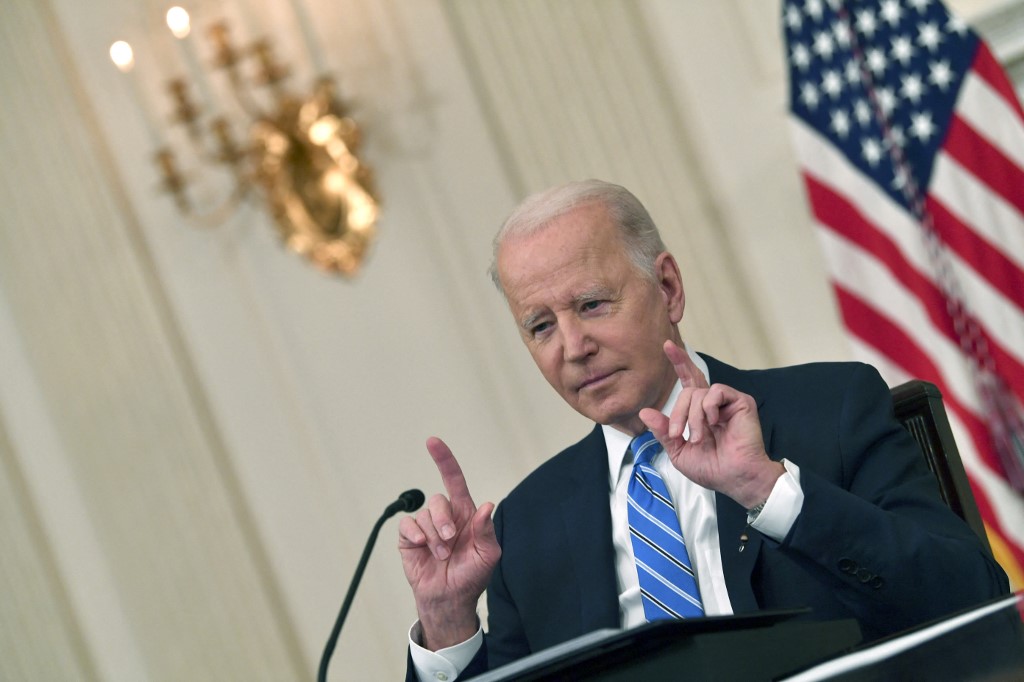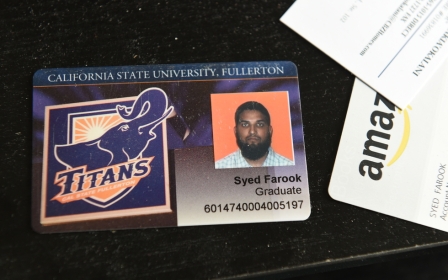US Muslim ban: Biden has failed to address lasting harms

Ramin Raghifar won the lottery when he was selected to receive a diversity visa in 2019. His dream was to come to the US and build his career in medical research. But despite having numerous job offers, that was all torn away from him because of his Iranian origin - thanks to the Trump-era Muslim ban.
It has been a year since President Joe Biden lifted former President Donald Trump’s ban, and while the move originally fostered optimism, Raghifar and others like him have yet to see relief. The ban has caused acute and ongoing harm to Muslim communities.
After years of heartbreak, the Biden administration must do more to reassure these applicants that they will not have to go through this pain again
Islamophobia and xenophobia were central to the Trump ideology, continuing a long legacy of white supremacist violence in the US. During his presidential campaign in 2015, Trump called for “a total and complete shutdown of Muslims entering the United States”.
Upon becoming president, one of his first moves was to issue an executive order prohibiting travel into the US for people from Iran, Iraq, Libya, Somalia, Sudan, Yemen and Syria. Trump later expanded the ban to target a number of other states in Africa and Asia.
Upon taking office in January 2021, Biden swiftly repealed the Muslim ban - but families and individuals continue to face barriers. Many are now stuck in the immigration visa backlog, worsened by Covid-19 travel restrictions and embassy closures. In February 2021, there were 473,000 immigrant visa cases pending for interviews - a number that does not include individuals at different stages of the process.
Stay informed with MEE's newsletters
Sign up to get the latest alerts, insights and analysis, starting with Turkey Unpacked
Many Muslim immigrants from previously banned countries are still waiting to receive updates from the government on the status of their applications and to finally be reunited with their families.
No clear guidance
There is still no clear guidance on steps for those who were denied visas under the ban. During the course of the ban, the State Department denied more than 40,000 visa applications. Today, many of these individuals are resorting to reapplying for a visa under the same process they used the first time - an extremely lengthy, costly and emotionally exhausting endeavour. Many wonder if it’s even worth it, with no assurances of success.
According to the State Department, the Muslim ban kept more than 1,500 children from their American parents, more than 3,000 parents from their American children, and nearly 4,000 people from their partners. People also missed important life events, such as marriages, graduations and funerals. The ban caused families to keep their lives on hold, causing unnecessary stress and uncertainty.
After years of heartbreak, the Biden administration must do more to reassure these applicants that they will not have to go through this pain again. At the same time, some are being denied relief altogether: diversity visa winners barred from entering the US under the ban, such as Raghifar, cannot reapply for a visa as the Biden administration did not include them in the group of denied visa selectees invited to reapply. Instead, the Biden administration has indicated it needs Congress to act to make visas available to those who were selected but unable to secure their visas.
In addition, Iranian men who did compulsory military service are also still banned from entering the US, regardless of how long ago they served. Many have wives, children and parents living in the US whom they have not been able to see in years.
Severe impacts
Consular services also have yet to be fully restored for visa applicants from banned countries. For Iranian nationals, this is especially difficult because there is no US embassy in Iran, leaving Iranian students with very few opportunities to secure their appointments. Some have had to defer enrolment or miss out on admission altogether.
Meanwhile, those lucky enough to secure a visa still worry about potential deportation. Between August 2019 and January 2020, more than a dozen Iranian students with valid visas who came to pursue higher education in the US were sent back to Iran, after facing lengthy detentions, extensive questioning and humiliating treatment, such as having candy thrown at them or being forced to wear cuffs and chains. Their visas were revoked, despite a notoriously difficult initial vetting process.
Iranian and Iranian American communities were also severely impacted after the US assassination of Iranian military leader Qassem Soleimani in January 2020. US border officers subsequently detained and subjected dozens of Iranians and Iranian Americans returning from Canada to additional scrutiny.
It’s past time that Biden take action to fully reverse the harmful impacts of Trump’s shameful legacy. Last week, more than 100 organisations sent a letter to the Biden administration detailing 13 policy proposals to fully redress the harms caused by the Muslim travel ban. These include providing clarity for impacted communities, addressing the cases of those who were denied visas, and restoring consular services, among other items.
Our communities deserve real relief - not half-fulfilled campaign promises.
The views expressed in this article belong to the author and do not necessarily reflect the editorial policy of Middle East Eye.
Middle East Eye delivers independent and unrivalled coverage and analysis of the Middle East, North Africa and beyond. To learn more about republishing this content and the associated fees, please fill out this form. More about MEE can be found here.






